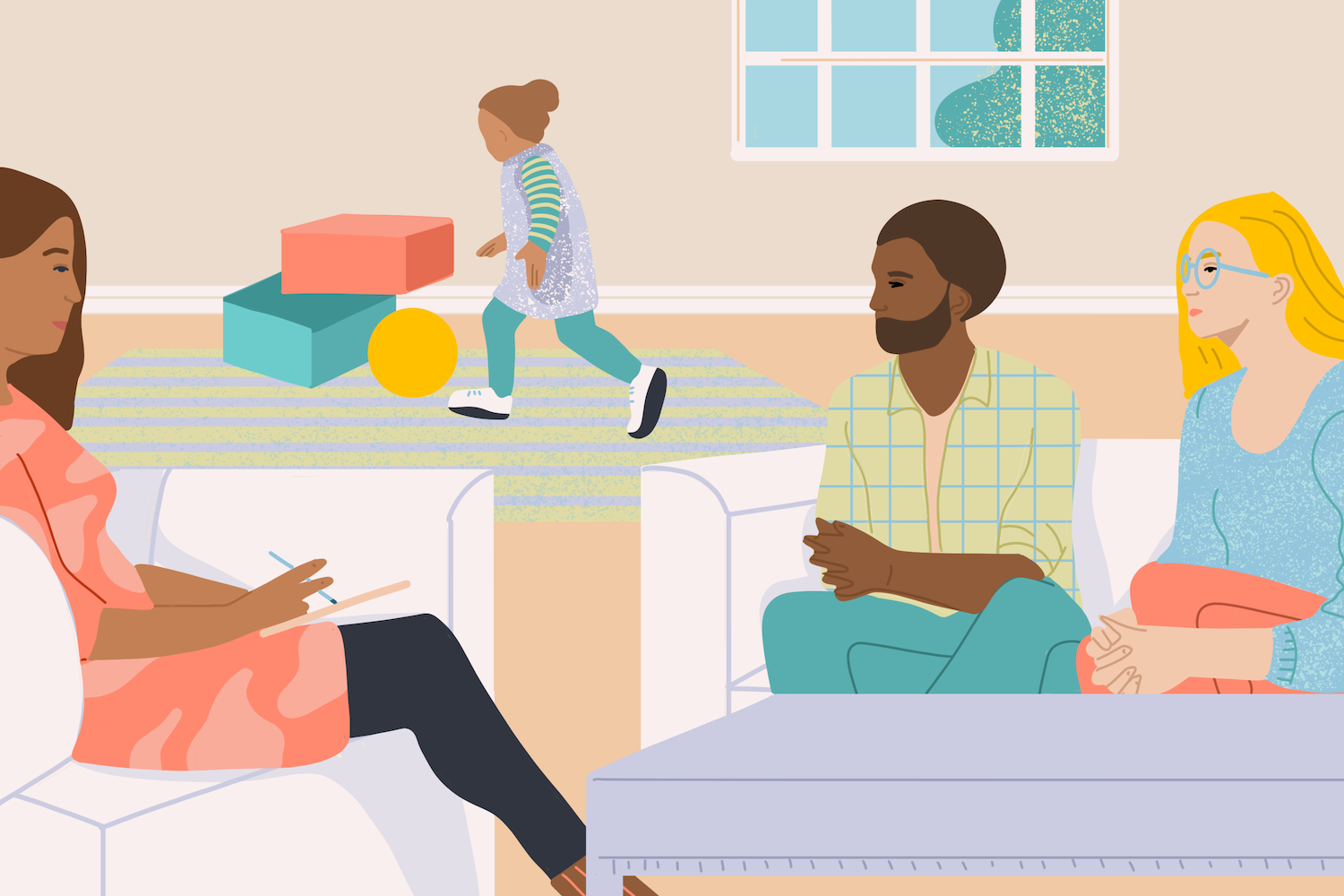
I once saw a funny social media post by a pediatrician after she had her first child: "I sincerely apologize to all of the new moms to whom I ever said, 'breastfeeding shouldn't be painful if you're doing it correctly.'" That got a big snort out of me, and also caused some reflection over the years.
I'm a child and family psychologist and I admit there is some advice I gave to families before having my own children (1 and 5 years old) that I cringe when I look back on. Don't get me wrong, they are sound and well-researched principles of child psychology. But what I've learned through my own personal trial and error is that these tools are deceptively hard to implement, sometimes at the cost of my own ability to relax with a cup of tea.
I've also learned I never regret approaching my children with a spirit of curiosity instead of reacting right away. I've mastered the art of buying time and insight by asking bizarre but genuine questions such as, "What do you like about dumping puzzle pieces behind the couch?"
Since becoming a mom, there is a good amount advice I've either cut from my professional practice, or at least stopped sharing as the gospel truth. Here is what I tell families I work with now.
Ignoring is easier said than done.
Kids crave adults' attention, so it makes sense that ignoring annoying behavior could eventually yield the results you're looking for. However, this is easier said than done when your child is running around the house with sticky ice cream residue on their hands, ignoring your pleas to get in the bathroom and wash up. Instead of ignoring, I've found more success in my own household by appealing to their sense of agency. I ask, "How do your hands feel? Do you think you ought to wash?"
Being adaptable is better than being consistent.
Hitting, snatching toys, screaming at the top of their lungs for no earthly reason: my kids know these behaviors violate house rules. In principle, I ought to react consistently with a consequence or ignoring (see above). But the problem with consistency is that my kids are constantly changing, and so is my response. Sometimes they need to go to their rooms, sometimes they will move on with no particular intervention, and sometimes they really benefit from a second or third chance to do the right thing. As we all do, I guess.
A rewards system may not work for you.
I have seen rewards work well in my family. I have also seen my son lose his mind over not getting a reward because he failed to earn it. Sometimes, the ensuing tantrum is just not worth it for me. Using rewards is essentially a power move: I have the thing you want, and you'll only get it if you do as I say. There's nothing inherently terrible about that, but it's not always the dynamic I'm aiming to cultivate.
You know your child best.
Being a mom has also shifted the way that I interact with parents in my practice. I've learned to stop offering parents advice before asking, "What have you already tried?" Parents are inventive, resourceful, and we know our kids best. Nothing undermines a parent's natural creative energy like getting unwanted advice—even from a psychologist. I've learned to suppress my advice-giving instinct until I've confirmed that someone is interested in hearing it.
Don\’t feel bad about not following advice.
I've learned not to take it personally when parents don't follow through on my suggestions. Now that I've been in the parenting game for a while, I know that we're all just exhausted. Parents might be right in the middle of some other major drama, and not quite ready to make a big change. For instance, my daughter's primary care provider told me to take away her bottle before 18 months, the age when toddlers start to have strong opinions about this issue. Was the provider correct? Yes, 100 percent. Did I follow her advice? No, I did not. Why? I had a lot going on that month, and my daughter's bottle habit just did not seem like a priority item.
Remember, you\’re doing your best.
The theme here is that parents' peace and sanity matter—a lot. We're doing our best. We have to give ourselves permission sometimes to fight the battles tomorrow and enjoy a moment of peace today. This is especially true in 2020, when our families' lives have been turned upside down.
What will your children remember about this year? Will they wish that their parents had begged, bribed, or punished them to do one more hour of screen-school? Or will they recall that their parents were flexible, that they listened, and that they modeled their hope that one way or another, everything would turn out OK? I hope that my kids remember 2020-me as a mostly happy and calm person, a human being with my own concerns, comfortable with the limits of my own control.
Dr. Emily Kline is a psychologist and researcher at Beth Israel Deaconess Medical Center in Boston and an assistant professor at Harvard Medical School. She specializes in diagnosing and treating mental health difficulties among teens and young adults. Her current research focuses on helping families access high quality mental health services and teaching parents to use therapeutic communication strategies to manage conflict with their teen and young adult children.
